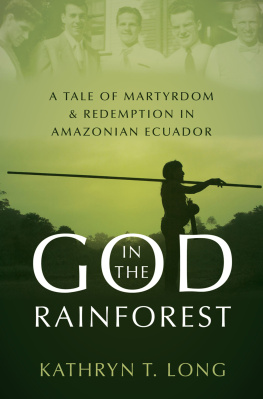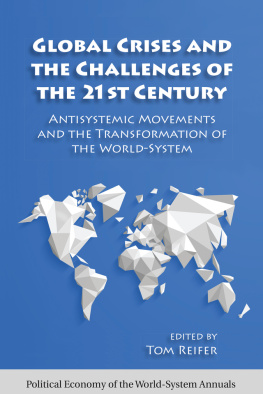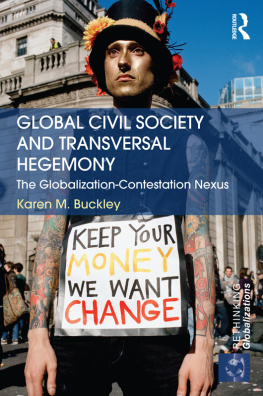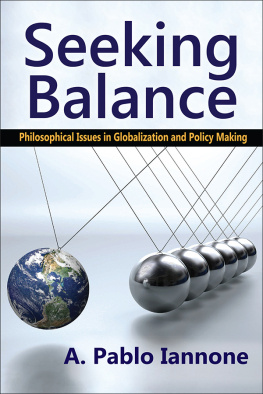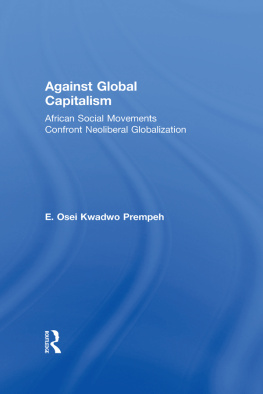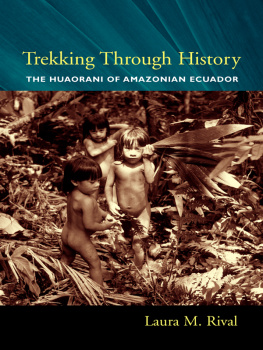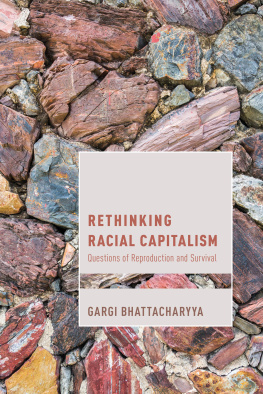Resistance in an Amazonian Community
RESISTANCE IN AN
AMAZONIAN COMMUNITY
Huaorani Organizing against the Global Economy
Lawrence Ziegler-Otero
Published in 2004 by
Berghahn Books
www.berghahnbooks.com
2004, 2007, 2008, 2009 Lawrence Ziegler-Otero
First paperback edition published in 2007
Reprinted in 2008, 2009
All rights reserved. Except for the quotation of short passages
for the purposes of criticism and review, no part of this book
may be reproduced in any form or by any means, electronic or
mechanical, including photocopying, recording, or any information
storage and retrieval system now known or to be invented,
without written permission of the publisher.
Library of Congress Cataloging-in-Publication Data
Ziegler-Otero, Lawrence.
Resistance in an Amazonian community: Huaorani organizing against the global community / Lawrence Ziegler-Otero.
p. cm.
Includes bibliographical references and index.
ISBN 1-57181-448-5 (hbk) -- ISBN 1-84545-306-9 (pbk)
1. Organizacin de las Nacionalidades Indgenas de la Amazonia Ecuatoriana--History. 2. Huao Indians--Politics and government .. 3. Huao Indians--Civil rights. 4. Huao Indians--Government relations. 5. Protest movements--Ecuador. 6. Self-determination, National--Ecuador. 7. Indians, Treatment of--Ecuador. 8. Ecuador--Race relations. 9. Ecuador--Politics and government. 10. Ecuador--Social policy. I. Title.
F3722.1.H83Z54 2004
986.6'400498--dc21
2003051811
British Library Cataloguing in Publication Data
A catalogue record for this book is available from the British Library
Printed in the United States on acid-free paper
Hardback ISBN: 978-1-57181-448-7, Paperback ISBN: 978-1-84545-306-0
CONTENTS
ACKNOWLEDGEMENTS
It is of course a clich to state that a book or other large undertaking would not have been possible without the support of... But like many clichs, it is often repeated precisely because of its fundamental underlying truth. While this work is a product of my years of research, it is also very much a product of ongoing conversations with my colleagues, friends, family, and students. At their best, these conversations have stimulated my thinking, challenging me to continually rethink what I thought were settled ideas and arguments.
I would like to thank my academic colleagues in the U.S.: Thomas Patterson, Anthony Ranere, Elmer Miller, Kathy Walker, Kenneth Kensinger, and Terry Turner, as well as the late Peter Rigby. In Ecuador, where I received invaluable assistance as well as moral support from FLACSO in Quito, I would like to thank Flica Barclay and Francisco Carrion of FLACSO, Andy Drumm, Javier Grijalva, Delaney Kellon, and Leonardo Viteri. I am also grateful to my friends Mark DeBevoise and John Caroulis who read and commented on previous versions of this work.
The people at Berghahn Books have been wonderful to work with, including Marion Berghahn, Maria Reyes, and Jaime Taber, a truly amazing copy editor who has made me sound better than I deserve.
Next come thanks to my family, who have had to put up with the entire process: my wife, Wanda Otero-Ziegler, who as usual has exhibited patience and support above and beyond the call; my daughter Rosa Jacqueline Faith Ziegler, who has seemingly grown up while being told Daddy is writing; and my mother Jacqueline C. Ziegler, for her gentle encouragement to get it done.
In the end, of course, the greatest debt is owed to the activists of ONHAE and to the Huaorani people. I was granted access, friendship, and support that will take me a lifetime to repay. Their bravery, humor, and gentility are my inspiration. Ultimately it is to the Huaorani and their continuing struggle for survival that this work is dedicated.
INTRODUCTION
In 1990 the Huaorani people of eastern Ecuador formed the Organizacin de las Nacionalidades Indgenas de la Amazonia Ecuatoriana or ONHAE. The group of young, Spanish-literate men who initiated this step wanted an organization that could speak for the Huaorani in dealings with the multinational oil companies, missionaries, and state agencies that were increasingly threatening Huaorani territory and autonomy. In founding a nongovernmental organization (NGO), the Huaorani were emulating the organizational processes of the Shuar (Jvaro), Quichua, and Siona-Secoya groups, and joining with them in provincial, regional, and national confederations. This represented a dramatic step outside of Huaorani cultural practices and necessitated the adoption of notions of contract, government, democracy, and hierarchical power prevalent in western capitalist societies.
The organization thus formed has found itself positioned among and within a plethora of competing interests, powers, and ideologies. Missionaries, oil companies, environmentalists, and other indigenous organizations have all tried to co-opt, manipulate, or silence ONHAE. The organizations leaders have been accused of corruption, threatened, condemned as communists, and beguiled with gifts and attention designed to influence them. They have signed agreements with the Ecuadorian state and the oil companies, in apparent contradiction of their organizational positions and public statements.
The preceding narrative raises a number of important questions. Why did an organization whose primary purpose at the time of its founding was to block the oil development of Huaorani territory sign not just one but a series of legally binding contracts permitting exactly such oil exploration? How have non-Huaorani used Huaorani cultural practices to manipulate the leaders of ONHAE? How has the creation of such an organization affected Huaorani cultural practices, and how have the leaders of ONHAE been able to interact with the representatives and institutions of a capitalist nation state and international economy? Finally, what can be learned from the experiences of ONHAEwhat are the special pitfalls facing traditionally egalitarian societies when they try to organize?
This study examines ONHAE, the organization and its leaders, by placing them within the multiple and interpenetrating contexts in which they are forced to operate. By forming a representative organization, one legally authorized to speak for the Huaorani people, the founders of the group created an identifiable nexus of power within the traditionally acephalous Huaorani culture. The oil companies, the missionaries, and the state were subsequently able to target this small, inexperienced leadership cadre in their continuous efforts to influence and suborn ONHAE policy. Thus, by abandoning the traditionally diffuse decision making processes of Huaorani culture, a seemingly progressive and logical step, the very formation of an organization dedicated to struggle rendered that organization an instrument of forced assimilation, capitalist penetration, and the loss of independence of another of the worlds indigenous peoples.
This research is important for anthropology in a number of ways. Currently, in the wake of the controversy sparked by Tier-neys critical appraisal of the work of Napoleon Chagnon and others, anthropology is in the midst of a reappraisal of its role in the struggle for indigenous autonomy and self-determination. The discipline of anthropology has a long-standing relationship with indigenous societies around the world and, I believe, a moral and ethical obligation to serve as an advocate for indigenous rights. This commitment has been echoed by many of those working with what Richard Lee (2000) has called the small peoples (cf. Rabben 1998, esp. 27-41; Sponsel 1995: 274-83; Warren 1998: xi-xv). The Declaration of Barbados (quoted in Sponsel 1995: 275) calls on anthropologists to reject false notions of scientistic neutrality in favor of active support for indigenous rights and activism. Sponsel (1995: 277-79) states:


